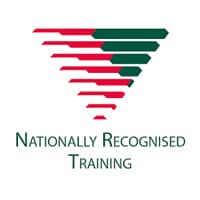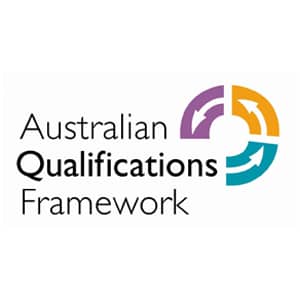With Australia’s ageing/disabled population on the rise, CHC33021 Certificate III in Individual Support (Disability) is a popular course in Australia. We deliver this qualification to fulfil the gap in the growing demand for care workers who are willing to help disabled clients to maintain their independence in their homes, group homes, and community care.
This course is an entry-level qualification. On completion of this course, you will be equipped with the skills and knowledge to provide support and care to disabled clients to ensure their daily needs are met.
Entry requirements
There are no entry requirements for this course; however, it is recommended that students:
- are at least 18 years old
- have proficient computer skills with internet access and have a valid USI.
- A reasonable level of fitness and flexibility to carry out first aid and manual handling
Additionally, you need to attend and achieve a satisfactory result on the language, literacy, and numeracy (LLN) test. The LLN test will be conducted either face to face in a hard copy or via eLearning: Moodle. The LLN test will determine whether the student needs additional support to achieve the following ACSF Levels-
– Learning – Level 3,
– Reading – Level 3,
– Writing – Level 3,
– Oral Communication – Level 3
– Numeracy – Level 3
Students must possess proficient computer skills and have access to the Internet.
Students will be required to obtain an Australian National Criminal History check at their own cost and Working with Children check and an NDIS Worker Screening Check (depending on the placement provider) – which can be obtained voluntary for work placement. Failing to obtain clearance on this check may result in discontinuation of the course.
Course Fee and Payment Options
Price for Sydney-based students
Course fee – $1600.00
Price for Distances students
Course fee – $1800.00
Course fees can be paid by either option: debit/credit card and bank transfer. You can also pay in cash if you are attending face-to-face for enrolment. At least 50 percent amount of the total course fee should be paid during the enrolment. The rest 50 percent amount should be paid before starting the work placement or within two months of the enrolment, whichever is earlier.
For the duration of the course, no additional charges apply. However, students must obtain necessary background checks such as criminal history checks, worker screening checks, working with children checks, etc., and receive the necessary vaccinations, at their own cost.
Course Duration
The course duration is up to one year. Since it is a competency-based course, the actual time students complete the course however depends upon the delivery mode and individual experiences. The duration is the maximum time they should finish the course. To achieve the qualification, students are required to complete the specified hours of the volume of learning as per the training package. Students must have completed at least 120 hours of work placement as detailed in the assessment’s requirement of the units of competency. For the Distance students, must complete an additional 40 hours in the work placement.
Course Outcome
After successful completion of the course, you can apply for jobs such as:\
- Assistant in Nursing
- Personal Care Assistant
- Care service employees
- In-home respite giver
- Community care worker
- Community support worker
- Disability support worker
- Transport support worker
Work Area
- Residential Aged Care Facilities
- Home and Community Care
- Disability Group Homes / Disability Centres
Course Packaging Rules
The packaging rule is based on the endorsed training package or accredited course that contributes to a valid, industry-relevant, or supported the vocational outcome. The course package is as follows:
Total Number of Units – 15 Units
Core – 9 Units
Elective – 6 Units
The core and elective units are listed below.
CORE
- CHCCCS031 Provide individualized support
- CHCCCS038 Facilitate the empowerment of people receiving support
- CHCCCS040 Support independence and wellbeing
- CHCCCS041 Recognise healthy body systems
- CHCCOM005 Communicate and work in health or community services
- CHCDIV001 Work with diverse people
- CHCLEG001 Work legally and ethically
- HLTINF006 Apply basic principles and practices of infection prevention and control
- HLTWHS002 Follow safe work practices for direct client care
ELECTIVES
- CHCDIS011 Contribute to ongoing skills development using a strengths-based approach
- CHCDIS020 Work effectively in disability support
- CHCDIS012 Support community participation and social inclusion
- CHCAGE011 Provide support to people living with dementia
- CHCPAL003 Deliver care services using a palliative approach
- HLTAID011 Provide First Aid
Note: Elective units may be different for a single qualification at different delivery institutions.
For more information on this course please see https://training.gov.au/Training/Details/CHC33021
Study Modes
We offer the course in two different categories: blended and distance modes.
Blended mode:
Blended mode is a combination of face-to-face and distance delivery. This mode is for those regular students who can attend the practical classes at our Burwood campus, and the work placement facility is accessible to our Sydney-based trainers/assessors. Students complete all the theory-based tasks at their own pace at home learning. The students should need to attend the classes for first aid, manual handling, simulation, and role-plays. They also need to attend college for placement orientation, assessment submission, and any personal support requirements. All the classes/appointments are booked based on a first come first serve
basis, based on the availability.
Distance mode:
Distance mode is delivery without face-to-face interaction with the college. All the training and support are provided in a distance form with different communication means and technologies. Those who cannot attend our face-to-face classes at Burwood campus and our trainers/assessors cannot oversee face-to-face during their work placement are considered as ‘distance’. Thus, distance students need to learn the practical components at the placement facility during the first 40 hours of their work placement. Thus, the placement hours for distance study mode are an additional 40 hours than those of blended study mode. Trainers/assessors will be observing students from a distance, using online technologies.
Assessment Tasks
Students need to satisfactorily complete all the assessment tasks of each unit of competency. The assessment tasks are broadly categorized into two: i) Theory Tasks and ii) Practical Tasks. Students get two different booklets to complete these two different task categories.
Theory tasks are conceptual and cover knowledge evidence to the students. Students get questions and space in the booklet to answer those questions. Theory-based tasks should be downloaded in a Word file or students can also request the printed booklets if they wish to hand-write the answers, for an additional charge to college.
Practical tasks are of two components. The first one is classroom-based where learners show skills in the simulated environment. Students will translate their knowledge into skills through demonstration, interaction, role-play, and simulation. The second component is completing tasks during their work placement. Some tasks such as direct workplace observations are completed during the assessor’s visit or via online at the work placement while workplace projects or reports can be completed on students’ own time. Some tasks also need to be approved by the workplace supervisors.
Work Placement
The 120 hours of voluntary work placement is mandatory for completing this course as mentioned earlier. Students translate the skills they learned in the classroom-based environment into the actual workplace through workplace tasks. Distance students will have to have an additional 40 hours on top of the 120-hours placement. For the blended study mode, Advance College is fully responsible for arranging the placement for the Sydney-based students. For the distance study mode, the college will try its best to find the placement but does not provide a guarantee. Click here for the details about the work placement.
Recognition of Prior Learning (RPL)
Recognition of prior learning is an assessment process that involves assessment of an individual’s relevant prior learning (including formal, informal, and non-formal learning), skills, knowledge, and experiences to determine to meet the requirement of qualification or to get credit outcomes of an individual application for credit.
Credit Transfer
Advance College has an obligation to recognise prior Australian Qualifications Framework (AQF) qualifications and Statements of Attainment (SoA) issued by other registered training organisations. You need to supply us with the evidence of prior qualifications and SoAs. We may also request you to authorise us at the USI to verify your prior qualification.
Further Study
If you want to study further after successfully completing this course, you can study the different courses, including:
- CHC43015 Certificate IV in Ageing Support
- CHC43121 Certificate IV in Disability Support
- Any other Certificate IV or Diploma level of CHC training package.
Fee Help and Payment Terms
Advance College is a ‘fee for service’ training provider for full qualification. Therefore, all the learners must pay the full course fee.
We have an approved program for Targeted Priorities Prevocational and Part Qualifications (TPPPQ), please contact us for further information.
Students at Advance College pay the course fee in advance but not more than $1500. Please note that we do not collect more than $1500 in advance for any circumstances. The payment terms are the first instalment is at least 50 percent of the total course fee, and the remaining amount is at the second instalment. The second instalment is due within two months of enrolment or before commencing the work placement, whichever is earlier.


 Winner- Local Business Awards Inner West Sydney 2022
Winner- Local Business Awards Inner West Sydney 2022 Winner- Local Business Awards Inner West Sydney 2021
Winner- Local Business Awards Inner West Sydney 2021 Winner- Local Business Awards Inner West Sydney 2020
Winner- Local Business Awards Inner West Sydney 2020